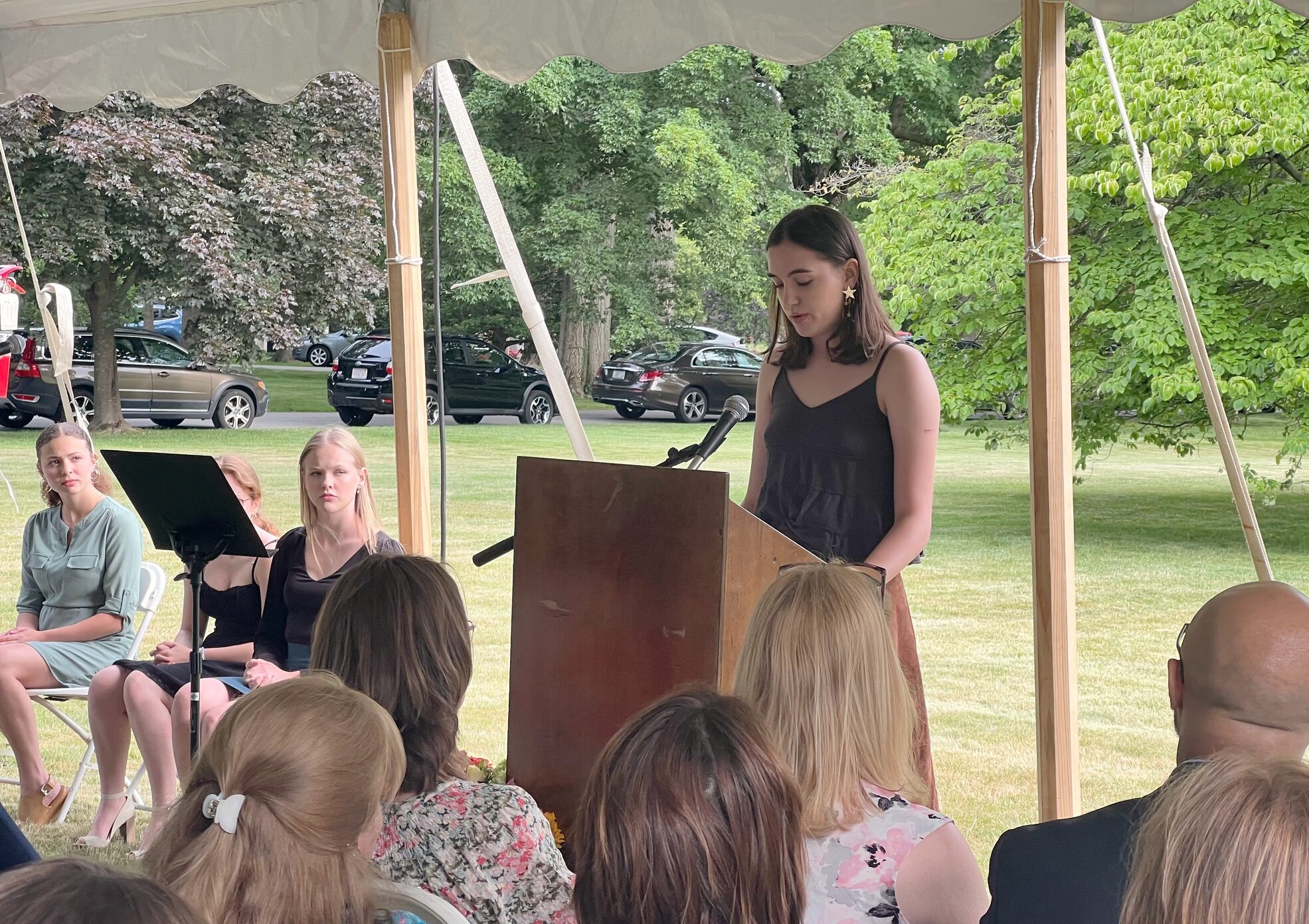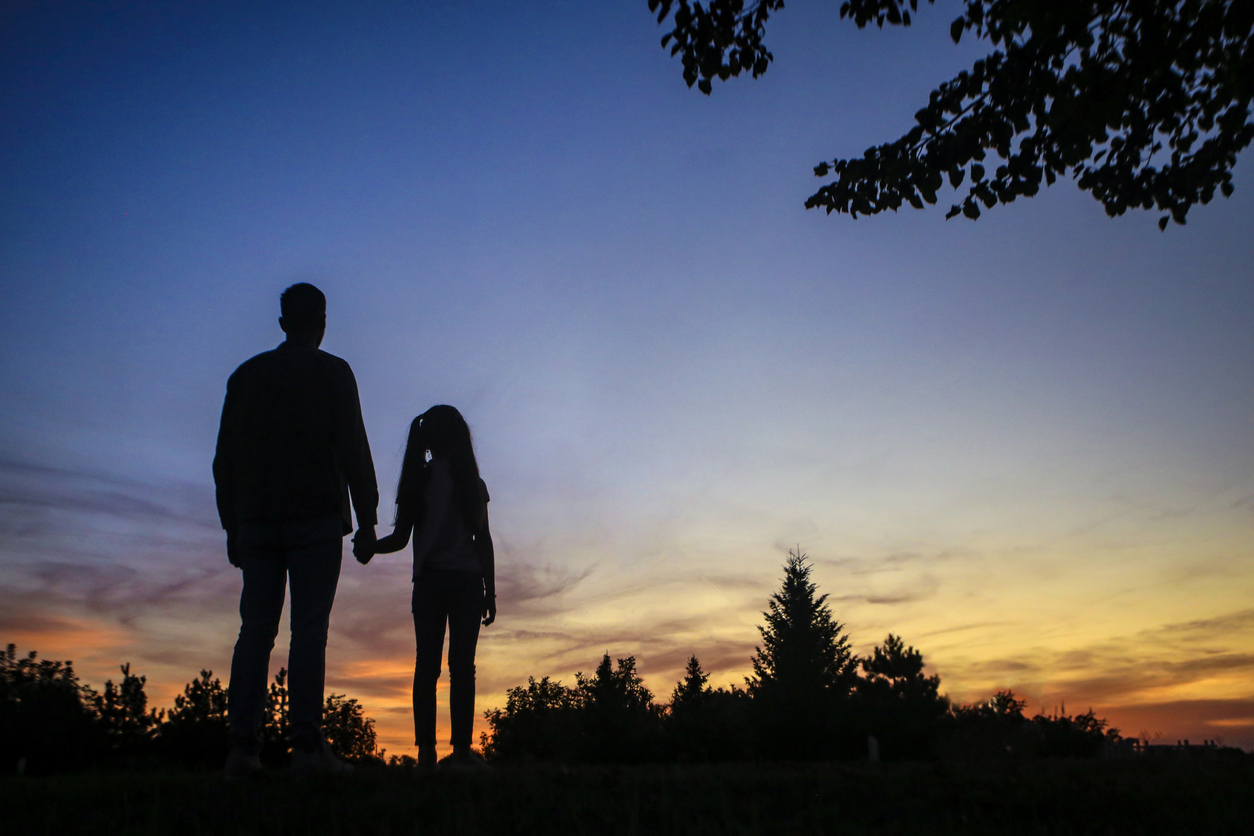At HopeHealth’s Summer Evening of Hope & Remembrance, family member Arianna Cunha gave a tribute to her late father, and spoke about her experience with sudden loss, grief, and healing. We are honored to share her words here.
Someone once said, “Although the world is full of suffering, it is also full of the overcoming of it.”
My life ruptured just over a year ago when my father, Justin Cunha, passed away suddenly. He was only in the hospital for one week. Most days I still cannot believe he died. I can’t believe he won’t call me again, or that we’ll never go to another Yankees game together.
But I am learning that I can still discover, appreciate, and connect with the parts of him that are always here.

Memories of my dad
My dad filled up every room he walked into. He was the kind of person who always made sure the quiet ones in a group felt included.
My favorite story is the time we went to the movies — something Marvel, because we’re both geeks — and I begged for nachos. He gave in, of course. After we sat down he pulled out the Swedish fish he’d snuck in. I dunked one into the nacho cheese and told him it was delicious, he had to try it.
We spent the rest of the movie eating nacho cheese and Swedish fish and laughing and laughing and laughing. It became our inside joke for years.
A sudden illness, and a visit from hospice
My dad was walking around one day, in the hospital the next, then passed away within a week.
The morning of my dad’s last day, a hospice representative came and explained they wanted to sign my dad up for hospice services. I was confused. What more could anyone do for him?
Before, when I thought of hospice, I usually thought of terminal illness — a death that could at least be marginally prepared for. I now know that HopeHealth hospice care has a world of resources much bigger than I could have imagined.
One of those resources, I discovered, was grief support for me. At the time, I did not want to think about it. My grandma signed the form.
I’m so glad she did.
My early grief
This was not the first death I had experienced in my family, but it was the one that impacted me the most.
My mom passed away when I was 16 years old. At the time, I did not allow myself to feel that pain: She lived in a different state, and deep down it felt like I didn’t know her that well; that I was not allowed to grieve for her.
This time, death made me an orphan. That felt impossible to ignore.
In my early grief, I found it very difficult to relate to everyone else. I soon became so exhausted replying to “I’m sorry for your loss” texts that I ignored most of them. None of my friends reached out again after that. I spent months wondering how they could fail to support me after something so major happened.
I needed to talk to someone. I decided to attend the one-on-one grief therapy offered by HopeHealth.
> Related: 6 ways to help you heal after the loss of a parent
Understanding grief, with the help of a counselor
My HopeHealth grief counselor was easy to relate to because she not only had professional bereavement experience, but she had life experience too.
I soon began to learn that although my dad’s death was unique, almost all of my feelings were not. I learned that my friends failed to support me because it is almost impossible to understand what grief is like until it happens to you. I learned that grief lasts a lifetime.
I learned that slowing down and remembering to take care of yourself is part of grief recovery too.
I also soon discovered the importance of reintroducing yourself to society after grief. Grief is almost always isolating. It’s hard to be around other people when you are fluctuating through its many emotions.
But there are places where you’re not alone.
Learning to connect again
Soon I joined not one, not two, but three grief support groups.
All are distinctly different, and offered either virtually or in person by HopeHealth.
I go to a young adult grief group every other Monday, a place where I met some of the only people my age I know that have also lost a parent. I also go to an equine grief group each month, which I refer to as “Horsey grief group.” At the farm each month, you get to both talk about your grief with people who understand, and be around non-humans who will never judge you.
Each one of these groups became important to my existence. They taught me that my feelings are normal and that this pain is surmountable.
Most importantly, they taught me the importance of continuing to care about and be around others when the person you love is gone.
> Related: How signs may help those who are grieving stay connected to loved ones
The best parts of those we love
I miss my parents every day. But I also know that the best parts of them are still alive, somewhere inside of me.
I am the good thing they both did while they were here. I look so much like both of them. We do things so similarly, even though we barely knew each other. We were connected by something greater than nurture — nature. And that part of them is still here.
My parents may no longer be here with me, but I can still discover, appreciate, and connect with the little parts of them that are here.
The little parts of them that will be here as long as I choose to look for them.

